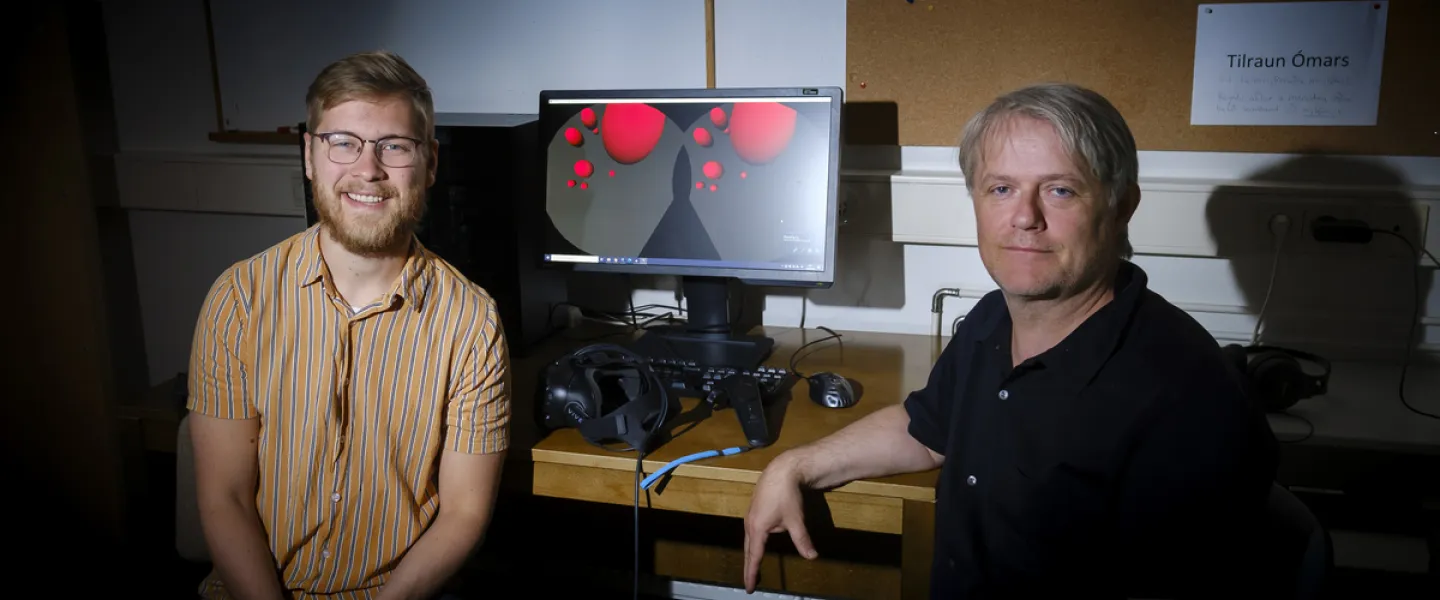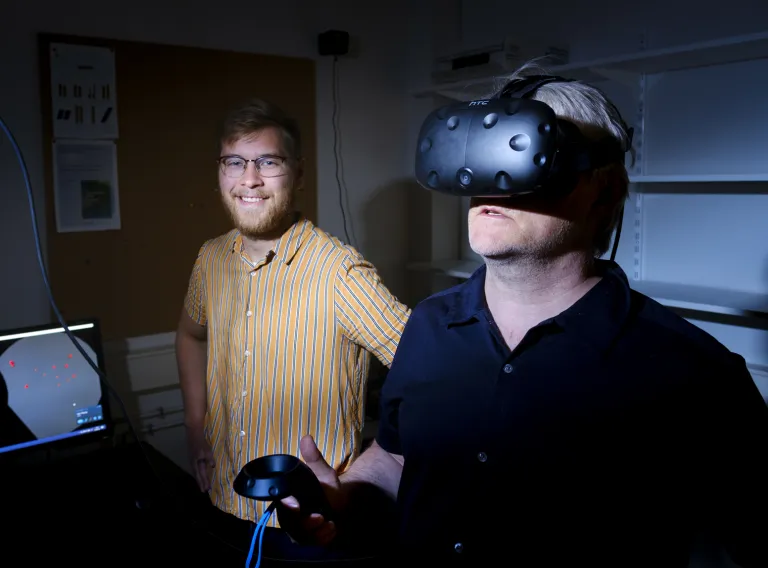
Obsessive-compulsive disorder is a disorder characterised by intrusive thoughts, compulsions or delusions that cause anxiety. The latest research of Ágúst Pálsson, Master's student in clinical psychology at the University of Iceland, is intended to shed new light on attentional function in people with such disorders, which could also lead to opportunities to develop effective treatments.
"The goal is to develop ways to measure attentional function in anxiety disorders such as obsessive-compulsive disorder. We will develop visual foraging tasks, which is one kind of attentional task used in psychological research, using a virtual reality environment where people look for faces with negative expressions among faces with positive expressions. Participants' performance in these tasks will be measured against measurements of their anxiety," says Árni Kristjánsson, professor at the Faculty of Psychology and Ágúst's supervisor.
"Obsessive-compulsive disorder is characterised by recurring and unwelcome intrusive thoughts. These thoughts are the obsessions. They can occur even though the person realises that they are not based in reality. Compulsions are a kind of behaviour related to these obsessive thoughts, intended to prevent the obsessions from coming true. A simple example, and pertinent considering events in recent months, might be obsessive thoughts about infection and constant hand washing. However, concerns about COVID-19 and a lot of hand washing in recent months in general would not be considered an indication of obsessive-compulsive disorder, since there is a rational basis for the worries and the behaviour. It will be interesting, though, to see how people behave once the pandemic is over. Will anybody develop the disorder after the pandemic?" wonders Árni.



